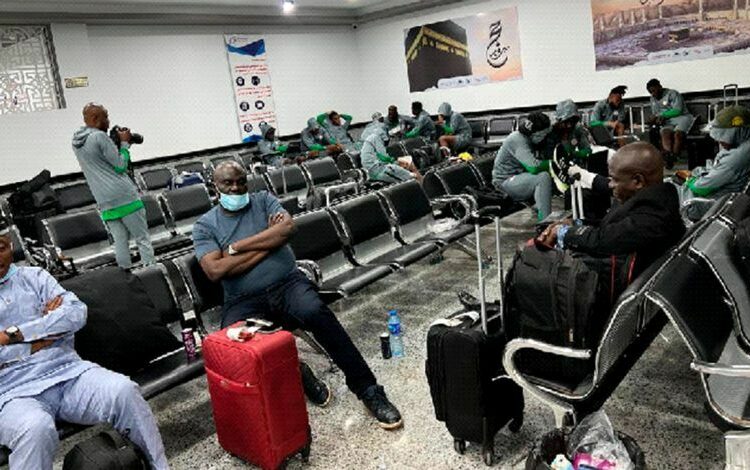In international football, the values of fair play and sportsmanship are not mere abstractions. They form the bedrock of a sport that, for decades, has captivated the world with its beauty and drama.
Yet, the recent Africa Cup of Nations (AFCON) qualifier between Nigeria and Libya exposed a troubling reality: those principles are under threat in African football.
The controversy centers on the mistreatment of Nigeria’s Super Eagles at a Libyan airport- a diplomatic embarrassment, but also a symptom of deeper administrative dysfunction.
The Nigerian team, fresh off a crucial 1-0 home victory, found themselves stranded at Al Abaq Airport for over 20 hours for their second leg of the game. Their chartered flight was inexplicably denied clearance to refuel and depart, forcing the team to endure an ordeal that seemed more like sabotage than bureaucratic miscommunication.
In our view, the timing of this disruption – just before a pivotal match – suggests a calculated attempt to derail their preparation.
AFCON 2025: CAF Gives Libya, Nigeria October 20 Deadline To Submit Documents
President Bola Tinubu in his reaction condemned the inhuman treatment of the Super Eagles.
He fervently called on all lovers of the round-leather game and administrators to unite and work collaboratively to prevent and overcome such incidents in the future
The president’s immediate call for an investigation by the Confederation of African Football (CAF) highlights the gravity of the incident.
It is clear that this incident has transcended the boundaries of sport and entered the realm of international relations.
We recall that the Ministry of Foreign Affairs had summoned the Libyan chargé d’affaires over the incident.
In the considered opinion of this newspaper, this is not just a Nigerian issue; it speaks to a wider problem in African football. The gamesmanship that plagued this event is not an anomaly. It is part of a disturbing pattern of unsportsmanlike conduct, often seen in matches involving North African teams.
Sadly, manipulating travel, creating hostile environments, and bending the rules have unfortunately become too common in African football.
The Libyan Football Federation’s explanation, that the delay was caused by routine air traffic issues, rings hollow.
The Nigerian Football Federation’s account paints a different picture – one of deliberate obstruction.
The facts demand a thorough investigation, not just into this incident but into the systemic problems that enable such behaviour.
If the allegations are proven, the consequences must be severe and far-reaching.
We strongly suggest that point deductions and tournament bans should be on the table, serving as a deterrent to any nation contemplating similar tactics in the future.
CAF’s initial response, postponing the second-leg fixture, is a step in the right direction, but it cannot be the last. A wider inquiry is needed to address the root causes of this culture of gamesmanship.
Needless to say, protocols for team travel, neutral observers at key transit points, and a rapid-response mechanism to handle emergencies must all become standard practice. Host nations that fail to comply with these protocols should face severe penalties.
Football’s magic lies in its fairness and the shared joy of competition. When that is lost, it is not just the teams that suffer but the sport itself. African football, with its vibrant history and passionate fans, deserves more than the tarnish of these unsavoury incidents.
As African football moves forward, there must be a renewed commitment to the ideals that make the game beloved. National federations, CAF, and all stakeholders must ensure that respect and integrity take precedence over gamesmanship.
The Libyan incident should serve as a watershed moment – a chance to reaffirm that unsportsmanlike behaviour has no place in the modern game.
CAF now faces a defining moment. Its actions, or lack thereof, will set the tone for African football’s future. Will it seize this opportunity to reform and restore trust, or will it let this moment pass, allowing such conduct to fester?
African football leaders must rise to the challenge. Comprehensive reforms, from independent oversight to transparent systems for hosting matches, are essential.
They must commit to fairness and integrity that transcends rivalries. Only then can African football fulfil its enormous potential and secure its place on the global stage.
The sport demands nothing less. Let this moment of crisis be the spark for change, ushering in a new era of respect and fair play across African football.





